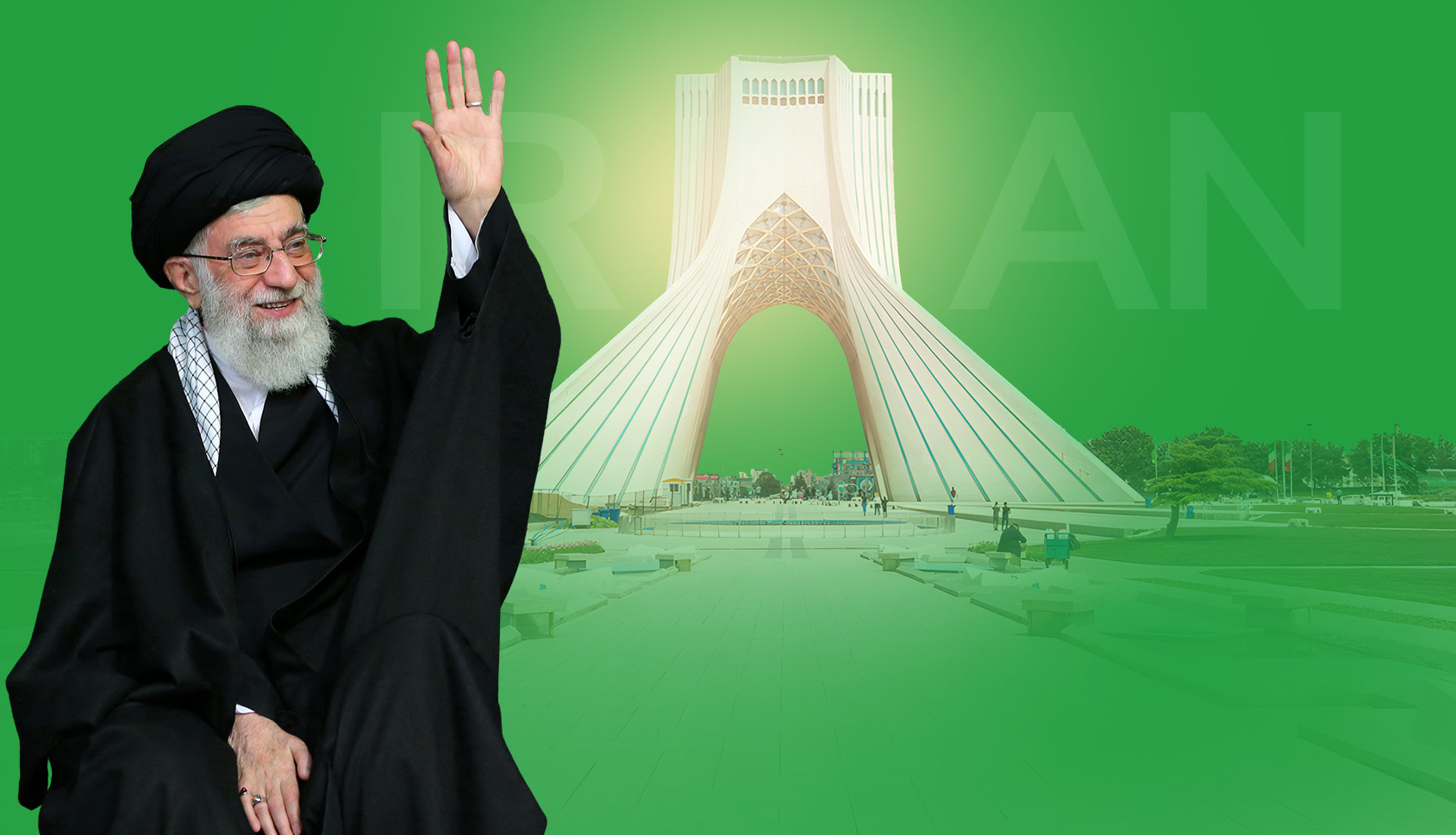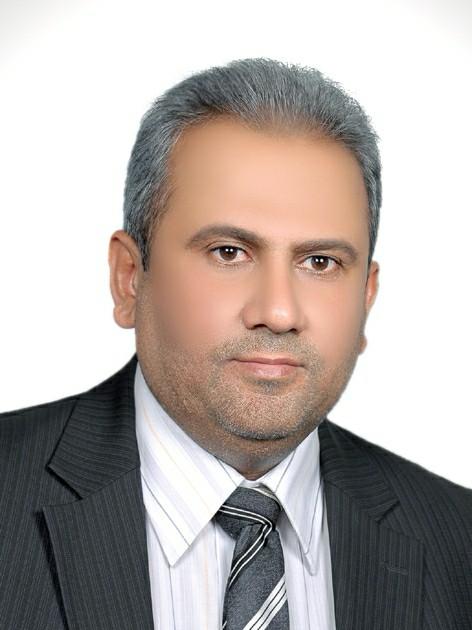The unique relationship between Iran and Iraq ensures that any significant political shift in Iran will have a direct impact on Iraq's political landscape. Under Article 110 of the Iranian Constitution, the Supreme Leader wields absolute authority over all internal and external state functions. Consequently, any transition in this role will significantly influence Iraq's political dynamics and processes.
In the shadow of tensions with Israel, discussions surrounding the anticipated successor to Iran's Supreme Leader have gained momentum, and what has further intensified attention on this matter is the fact that the Supreme Leader himself has addressed the issue publicly
Khamenei's Remark on his meeting with the Assembly of Experts Leadership
In a remark to the Assembly of Experts on November 7, Supreme Leader Ali Khamenei emphasized the assembly’s pivotal role in appointing his successor, describing it as a "critical" task that could shape the future of the entire system.
Khamenei underscored the gravity of this responsibility by quoting a verse from Surah Al-Imran:
"أفإن مات أو قتل انقلبتم على أعقابكم"
"If he were to die or be killed, would you turn back on your heels?"
Drawing a parallel to the Battle of Uhud, he highlighted the importance of perseverance, steadfastness, and adherence to the right path, even in the absence of leadership. Khamenei stressed that the Assembly of Experts bears a tremendous responsibility to elect a new leader swiftly and meticulously in the event of the Supreme Leader's "practical disappearance." He also reminded the assembly that, per constitutional requirements, the successor must be firmly committed to the principles of the revolution and determined to uphold and advance its path.
Reactions to the Iranian Leader's Remarks
The day after Supreme Leader Ali Khamenei’s speech, prominent Iranian preacher Haidari Kashani described the remarks as unprecedented. He emphasized the significance of Khamenei's choice to reference a Quranic verse addressing the then potential death or assassination of the Prophet of Islam in fights against foes, noting that the speech’s messages warrant deep reflection—particularly in light of continued threats from Israeli Prime Minister Benjamin Netanyahu. Kashani highlighted Khamenei’s insistence that the Assembly of Experts act swiftly and decisively in appointing a successor, underscoring the critical nature of their responsibility.
The following day, in a two-hour, 24-minute interview with Didban Iran, posted on YouTube, Abbas Palizdar, A former member of the Committee on Inquiry and Investigation during the Seventh Parliamentary Term—established to investigate corruption within Iran’s judiciary—revealed shocking details. Palizdar claimed that their investigation had uncovered the involvement of 52 officials in major corruption cases, including high-profile figures such as Mahmoud Shahroudi and Mohammad Yazdi, both former heads of Iran’s judiciary, as well as other prominent individuals like Imam Kashani. He also referenced corruption cases involving influential officials who are now deceased. Palizdar emphasized that if Mojtaba Khamenei were to assume leadership, he would be uniquely positioned to combat corruption and hold those responsible accountable.
These corruption cases are not new to the Iranian public; however, the failure to prosecute those implicated has been a significant source of public anger, and Palizdar’s decision to bring them up now appears to be an attempt to pacify public frustration and pave the way for Mojtaba Khamenei's potential candidacy as the only figure capable of resolving the current crisis. Palizdar noted that Mojtaba Khamenei recently ceased teaching religious lessons and lectures via virtual application—a move widely interpreted as preparation for assuming the nation’s highest leadership role.
Two days after Palizdar's remarks, Mehdi Nasiri, a former representative of Supreme Leader Ali Khamenei turned regime critic, disclosed significant behind-the-scenes details in an interview with Kayhan newspaper. Nasiri claimed that during the final meetings of the previous Assembly of Experts session, some members openly supported Mojtaba Khamenei as a successor to the Supreme Leader. However, this proposal faced strong opposition from Ebrahim Raisi, then deputy chairman of the Assembly of Experts and former president of Iran, as well as Ahmad Khatami, Tehran’s interim Friday prayer imam. The resulting tensions reportedly disrupted the meeting. Although no other sources have corroborated this account, Nasiri suggested that the formation of the new Assembly of Experts, allegedly with the support of the Guardian Council, is part of a broader effort to facilitate Mojtaba Khamenei’s succession.
During Friday’s sermon in Sari, Kashani stated that Supreme Leader Ali Khamenei had urged the Assembly of Experts to begin considering the appointment of his successor. However, in a contrasting tone, Abul Hassan Mahdavi, the interim Friday prayer leader in Isfahan, downplayed the significance of Khamenei’s remarks during his own sermon in Isfahan. Mahdavi dismissed the speech as nothing new but disclosed that a committee within the Assembly of Experts had already secretly shortlisted three candidates for the position. These candidates will be put to a vote by the assembly’s members at a later date.
Haidari Kashani's recent remarks sparked widespread uproar across Iran and on social media. In response, Mahmoud Rajabi, a member of the Assembly of Experts, dismissed Kashani’s comments, describing the Supreme Leader’s remarks as normal. However, Rajabi did confirm that a secret meeting of the Assembly had recently taken place.
According to leaked information, the meeting was reportedly held on September 26, 2024, during which Mojtaba Khamenei, Mohammad Mahdi Mirbagheri, and Alireza Arafi were nominated as potential successors to the Supreme Leader. While no official confirmation has been made, Mirbagheri is widely regarded as one of Iran’s most extremist clerics. His inclusion or mentioning his name in these events is often seen as a strategic move to bolster the chances of his opponent candidates. Arafi, on the other hand, has no ties to the Revolutionary Guards and is primarily known for his expertise in managing religious educational institutions. He also has not held any significant political positions.
The Fate of Former Candidates for the Supreme Leader Position
In recent years, all those mentioned as potential candidates for the supreme leader position have either passed away or been removed from the political arena. Mehdi Hashemi Rafsanjani died in 2017, Mahmoud Shahroudi in 2018, and Mohammad Taqi Misbah-Yazdi in 2021.
Hassan Khomeini, the grandson of revolutionary leader Ruhollah Khomeini, was not recognized as eligible for ijtihad despite his years of teaching and serving as a foreign studies instructor in Qom province. This disqualified him from running in the Assembly of Experts elections. Former Iranian judiciary chief Sadegh Larijani faced criticism due to accusations of his daughter spying for Britain, a corruption case involving his brother, and the arrest of Ali Akbar Tabari, who managed his economic affairs. The situation worsened when his brother, Ali Larijani, a former parliamentary speaker, was barred from running in Iran's presidential elections. In response, Sadegh Larijani submitted his resignation to the Guardian Council in protest and was effectively removed from the political sphere. However, he continues to serve as an advisor to the supreme leader and head of the Expediency Discernment Council.
Ahmad Jannati, the former chairman of the Assembly of Experts, did not run in the recent assembly election due to his advanced age; he is now 97 years old. Former President Ebrahim Raisi was widely expected to succeed him as first deputy chief of the Assembly of Experts. However, his helicopter crash just two days before the election altered the course of events. Months earlier, Vahid Haghanian, a former executive assistant in the Supreme Leader’s office, sparked controversy by revealing that Raisi had inquired about his chances of succeeding the Supreme Leader.
Meanwhile, Ahmad Khatami, whose political influence has waned after failing to be re-elected as a member of the Assembly of Experts’ leadership, has little chance of vying for the position.
Former Iranian President Hassan Rouhani, also a member of the Assembly of Experts, had aspirations to become the next leader. However, his candidacy for a new term in the assembly was rejected, effectively pushing him out of the political spotlight and diminishing his prospects.
At the first session of the new Assembly of Experts, held six months ago, senior cleric Ali Hosseini Ashkoori, a representative of Guilan Province, delivered a speech asserting that it was the current Supreme Leader’s duty to appoint a successor, despite constitutional provisions indicating otherwise.
Mojtaba Khamenei: The Rising Contender for Iran’s Supreme Leadership
With Donald Trump’s recent return to the White House, potentially creating more favorable conditions for Israel and heightening the threat to Supreme Leader Ali Khamenei’s life, Iran may see an opportunity to prepare for a transfer of leadership to the Supreme Leader’s son.
Unlike other Shiite Marja, whose positions are traditionally not passed down through family lines, the role of Supreme Leader is seen as a political-religious authority, representing an extension of the infallible Imam. Historically, succession by descent from father to son has been considered acceptable in such cases.
For the first time, Mojtaba Khamenei’s name has been publicly floated at this level, potentially as a way to gauge public reaction.
Born in 1969, Mojtaba Khamenei is the second son of Iran’s Supreme Leader, with siblings Mustafa (born 1965), Massoud (1974), Maysam (1978), Bushra (1980), and Hoda (1981). He is also the son-in-law of former Iranian Parliament Speaker Haddad Adel. Mojtaba has played a significant role in managing his father’s office, positioning him as a potential candidate for succession.






